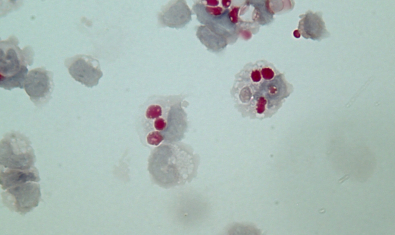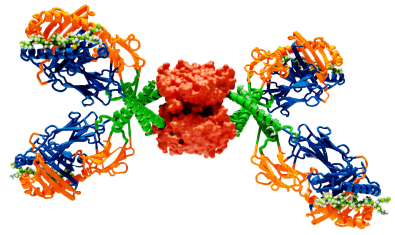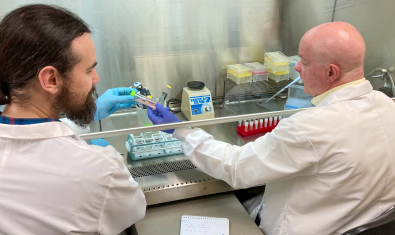Lupus: Disease Overview
As many as one in 1,000 people live with lupus (the most common form being systemic lupus erythematosus [SLE]). While no cures or therapies that provide a long-term remission (absence of symptoms) truly exist for lupus, there are a variety of treatments available that can help manage the symptoms. Scientists at BRI are studying the cells involved in this disease to better understand how it begins. Translational scientists are using these findings to identify specific targets for new treatments. Clinical trials are also underway to evaluate whether new therapies for lupus are effective.
What Is Lupus?
Lupus is a complex autoimmune disease caused by immune cells that mistakenly attack parts of naturally dying cells that normally would be quickly cleared away by the body. This can cause inflammation and low blood cell counts and result in skin rash, fatigue, joint pain, kidney disease, chest pain, headaches, confusion and bleeding problems.
Because lupus manifests in such a wide variety of ways, it can be difficult to diagnose. Flares of the disease can range from mild to severe, and the symptoms often go through cycles of being very active and then relatively dormant. In intense and complex forms, lupus can cause significant disability and even death. More than 1.5 million Americans are affected by lupus. Women of childbearing age are most often affected, though men, children and older people can also develop lupus.
What Causes Lupus?
Scientists don't yet know what causes lupus, though there appears to be a genetic predisposition to developing the disease. Researchers at BRI are investigating the interplay of genetics and environmental factors that may trigger the onset of lupus.
What Are Risk Factors for Lupus?
- Sex – Lupus is nine times more likely to affect women than men.
- Age – Lupus is typically diagnosed between the ages of 15 and 44, though children and older people may also be affected.
- Race – Lupus is more commonly seen in people of color.
- Family history – Relatives of people with lupus are more likely to develop it.
What Is the Latest Research Into Lupus?
Researchers and clinicians at Benaroya Research Institute and Virginia Mason Franciscan Health are leaders in looking for causes and treatments for lupus. Their efforts include:
- Understanding the cells and processes that cause lupus.
- Finding ways to slow down or tire out the cells that cause lupus.
- Gaining new insight into lupus-related kidney disease (lupus nephritis).
Labs Studying Lupus

Buckner Lab
The Buckner Lab is focused on identifying the underlying mechanisms by which regulation of the adaptive immune response fails or is overcome in the setting of human autoimmunity.

Hamerman Lab
The lab is interested in understanding how myeloid cells contribute to both productive and pathological immune responses during infection, inflammation, and autoimmune diseases.

Kwok Lab
The Kwok lab uses tetramers and other antigen specific T cell assays to examine autoreactive T cells in autoimmune diseases in order to provide insights into disease mechanisms and identify strategies for disease intervention.

Morawski Lab
The Morawski lab studies the adaptive immune response occurring during human inflammatory and autoimmune diseases of the skin and other barrier tissues.





